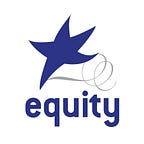DIVERSITY SPOTLIGHT: TAI HARA
Based on his own experiences in the film and television industry, actor Tai Hara has written and directed his first online five-part comedy series Colour Blind about a well-intentioned but glaringly white casting specialist blundering through the maze of cultural sensitivity as he strives to bring diversity to the screen. Tai Hara is an Australian actor (of European and Asian decent) and filmmaker best known for his starring role in Home and Away. Hara is also an ambassador for YGAP (Y-Generation Against Poverty) and AIME (Australian Indigenous Mentoring Experience) where he has also been an active mentor.
What inspired you to make your Colour Blind web series?
The idea of Colour Blind is really an amalgamation of so many different moments in my career and life as a person of colour. It’s a deeply personal story but the experiences are not just unique to me, they are part of a much broader conversation around how we navigate race and ethnicity in the industry.
These experiences I’ve had are beyond cringe worthy and can really affect your confidence and sense of self. I decided to convey this message through a mockumentary style satire so the audience could truly feel that awkwardness and get an idea of what it can be like to be a BIPOC actor. Similarly, I wanted to create a series that related to BIPOC actors and contribute to the supportive communities that are being developed in these areas.
What do you think of diversity in our current Film & TV/ Theatre landscape in Australia?
In this current climate, there’s a lot of talk about casting directors wanting people of colour, but our screens don’t reflect that. The reality is that the majority of Australian roles still lean heavily towards Caucasian actors. Whereas for people of colour, it still largely comes down to what ethnicity you are and what stereotype you fit.
One of the real challenges for BIPOC in the industry is just being able to exist as themselves, not being there to fill a quota or tick a certain box.
No one wants to have to explain their ethnicity for every role they go for and then feel like in some way, they are being judged on that. The way forward is casting people who are right for the role, then based on that, cater to that person’s ethnicity and cultural background — not the other way around.
What were your favourite films and TV shows when growing up and why?
The Sandlot Kids, The Mighty Ducks and I really loved Hook. Mostly because I saw myself in some of its characters, Rufio being a perfect example. It was characters like his that made me feel like I could be a leader.
Who were your role models?
My greatest role model would be my older sister, Asuka, who faces everything with an abundance of positivity and has a strength and power that is far beyond her stature. She has taught me that whatever you do in life, do it with kindness. I love her dearly.
What would your dream role be and why?
I always find this question hard as there are too many. Without being vague, I have a different dream role for pretty much every genre. But my dream role would be to bring a whole series to life. To basically do what I’ve done with Colour Blind but on a much bigger scale.
Where do you see yourself in 10 years’ time?
Our industry is forever changing, and I’ve come to find that wherever you think you’re going, throw away those expectations and just enjoy the ride. There are so many things that are out of your control in this industry, that just being open to your individual journey makes the adventures so much richer.
What do you do when you’re not working in the industry?
Outside of the industry I’m a family man. Fatherhood is still very new to me, but it’s already given a brand new perspective on things which I’m sure is going to play a huge part in whatever it is I create next.
Who inspires you in the industry and why?
Taika Waititi. His work speaks directly to everything I love about the industry, from his wildly authentic independent projects to the way he navigates the mainstream whilst still being true to himself and his culture.
What advice would you like to give to anyone wanting to enter the arts / entertainment industry?
Don’t think there’s only one way of doing things or one way to get there.
A lot of the time this industry makes no sense, and there are countless decisions that come down to things you will never know. Have conviction in what you do and believe in yourself.
What is your motto?
You are enough.
Interview by Joy Hopwood. Joy Hopwood is writer/producer of features The Casting Game, The Script of Life and Rhapsody of Love, and founder/artistic director of The Joy House Film Festival.
